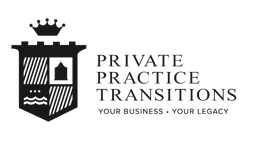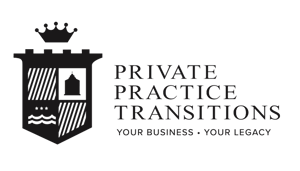Whether you have started a law practice and are looking to expand rapidly, or you are thinking about leaving a large firm and venturing out on your own, buying a law practice – buying a business – may be right for you. Regardless of where you are in your career, it is much easier (and more cost-effective) to buy a law practice than it is to start one all on your own. Many attorneys do not even consider purchasing a law practice because they don’t realize they can, and/or they don’t know where to even start with the process. However, buying a law practice is both possible and a great avenue to pursue, for the savvy businessperson. Below are a few things to consider as you learn how to buy a law practice.
Find Law Practices for Sale
You can’t purchase an existing law firm if you can’t find one for sale. Unlike real estate, you won’t find a “For Sale” sign outside of a law firm, even when the owner(s) of the firm wants to sell their practice. So, how do you find a firm that you can purchase? One organic path is to network with older attorneys who may be looking towards a transition in the near future. You will know them by their gray hair. You can also look in registries created for this niche, such as the one found on the Private Practice Transitions’ website. Registries of this kind are created by experts who are available to answer your questions. If you’re just doing initial research, BizBuySell has been known to contain listings of law practices for sale in the past, though obviously, the platform doesn’t provide any support beyond the listing.
Consider the Practice Type, Client Base, and Branding
Of course, you do not want to buy a commercial law firm if your area of practice is personal injury law. You need to first consider your long-term goals, what type of attorney you want to be, where you want to practice, and in what area or areas of law to ensure that you target the firms that most align with your experience and goals. If you do not yet have an area of law to which you have dedicated your practice, consider your personality, your interests, your values, the learning curve to be successful in a certain type of law, and, honestly, whether you have the dedication and drive to absorb a new practice focus.
Similarly, you should know what to look for in a law firm for sale. It is important to review the firm’s existing clients to gain an understanding of the needs being met and whether those clients seem like ones with which you would have good chemistry.
Do Your Due Diligence
Due diligence can and should be extensive. You should review financials, tax returns, cash flow projections, and meet with each owner and key staff. While making the decision to purchase a firm is important, due diligence will be the most time-consuming and enlightening step in taking over a practice. When conducting your due diligence, it is important to assemble a purchasing team, including your financial advisor (how will the purchase of the firm help you with your long-term financial goals?), your CPA (what are the tax benefits of purchasing a law firm?), and an advisor who can help you with deal structure (asset purchase versus stock purchase versus asset purchase treated as a stock purchase?). These professionals will be able to help you request and review the relevant seller-provided materials and documentation. You will then be able to utilize this information to draft a final purchase agreement so that you can move forward with buying a law practice and proceed with closing.
Create a Transition Plan
After buying a law practice, there will be a transition period. Think of it as a new business and, with that new business there must be a business plan. So, while the transition occurs after you purchase the practice, planning for that transition should occur before (i.e., during due diligence). This plan should include a detailed (yet organic, as things change) checklist of items that you will need to work through, including (a) production (who will be responsible for what work and at what level moving forward?), (b) firm management (hiring, firing, vendor management, lease negotiations, technology, and marketing plans), and (c) “all the things” that the old owner was responsible for, but now you will be taking care of. However, it also must be flexible enough to adapt to the changing business environment. During this phase, the seller should transfer the knowledge base, key clientele, referral networks, and other elements to give you the best chance of success in your new firm.
Contact a Washington Brokerage to Help
When buying a law practice, you should not do it on your own. At Private Practice Transitions, we are the pre-eminent professional services brokerage in Washington. We will ensure you have the support and guidance that you need during the purchase and sale process. If you want to learn more about how to buy a law firm of your own, call us today at (253) 509-9224 or contact us online to learn more about how we can help.






